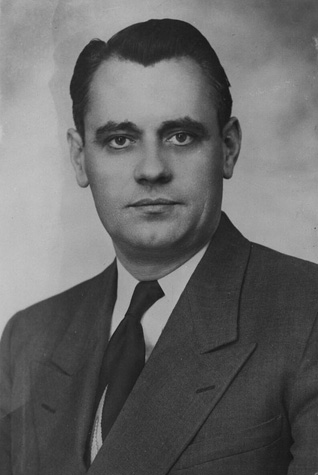Starr, Michael
Starr, Michael (Старчевський; Starchewsky, Starchevsky), b 14 November 1910 in Copper Cliff, Ontario, d 16 March 2000 in Oshawa, Ontario. Born into a family of recent Ukrainian immigrants from the Ternopil region, Michael spent his early years in Montreal and Toronto before his family settled in Oshawa. In 1928, when Michael began to work as a clerk in an Oshawa metal products factory, he shortened his surname to Starr on the suggestion of his employer. Starr’s first venture into politics was an unsuccessful campaign for the position of Oshawa alderman in 1937. He maintained his interest in municipal affairs, however, and was appointed to the Welfare Board in 1939. He was eventually elected to the municipal council in 1944 and in 1949, he became mayor of Oshawa. In 1952, Starr was elected member of federal parliament from the Progressive Conservative Party of Canada. As a member of parliament, he positioned himself as a representative of the “new Canadians” and was perceived by many Ukrainian community leaders as their spokesman in Ottawa on national and international issues. He spoke in the House of Commons and in public against the negative influence of communism in Canada and in foreign affairs and against the discriminative nationality policy in the Soviet Union.
In 1957, following the victory of the Progressive Conservative Party led by John Diefenbaker in the Canadian federal election, Starr was appointed minister of labour—the first Canadian of Ukrainian origin to hold this position. He was re-elected in the 1958 federal elections and as minister was faced with many national problems: seasonal unemployment, regional disparities, labour union negotiations, emerging militant Québecois nationalism. During his tenure as minister of labour, the Winter Works Program encouraged year-round employment and fundamentally changed Canadian seasonal working traditions. During his tours across Canada, Starr made a special effort to visit Ukrainian communities in towns and cities and spoke to his audiences in Ukrainian. He also visited Ukrainian communities in the United States of America. Locally he was one of the founders of the Ukrainian Business and Professional Club in Oshawa.
After the defeat of the Conservative government in the 1963 elections, Starr became an active member of the opposition and served as the house leader in parliament of the Progressive Conservative Party until 1967. In 1965, he was a member of a Canadian parliamentary delegation that visited the Soviet Union where he, among other things, complained about the Russification in Kyiv. His attempt to become leader of the Progressive Conservative Party in 1967 failed, and Starr also lost in the 1968 federal election by a mere 15 votes to Ed Broadbent of the New Democratic Party.
Starr was appointed Citizenship Court judge and served in that post from 1968 to 1972. From 1973 until 1980 he was chairman of the Workmen’s Compensation Board of Ontario. In 1983 he was appointed co-chairman of a task force reviewing conflict of interest and post-employment guidelines for members of parliament. Starr also remained an active member of the Ukrainian community and, following the 1991 Ukraine’s Declaration of Independence, he was actively involved in a project to twin Ontario’s Durham region with the city of Dnipropetrovsk (now Dnipro) in Ukraine. In recognition of his contributions, an Ontario provincial government office building in Oshawa was named in his honor.
BIBLIOGRAPHY
Momryk, Myron. Mike Starr of Oshawa: A Political Biography (Ottawa 2017)
Myron Momryk
[This article was updated in 2023.]
